Your marathon success isn’t just about how many long runs you’ve logged. It’s also about how well you fuel. The marathon runner diet and, in particular race day diet, can make or break your experience. With the right plan, you can avoid the dreaded wall, stay energized, and feel strong all the way to the finish line. This guide shares a complete, experience-based strategy that will help you fuel your body with purpose—so your training pays off when it matters most.
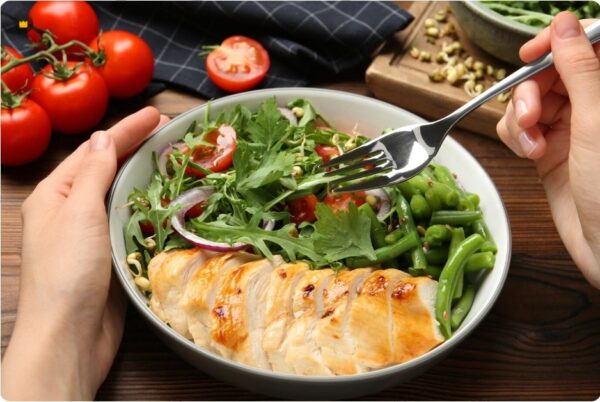
🥣 My Marathon Diet Journey
When I ran my first marathon, I had no idea how crucial nutrition was. I didn’t plan my meals or hydration, and halfway through, I felt it. My pace dropped drastically, I lost 6% of my body weight, and I hit the wall hard.
Since then, I’ve learned the hard way—and grown from it. Now I always bring a fluid belt, use gels during long runs, and follow a diet with oatmeal, bananas, raisins, and pasta. Everyone’s body is different, but your body needs practice. Fueling well is part of training.
Over the years, I’ve started to enjoy dialing in my nutrition strategy. It’s no longer just about performance—it’s also about feeling good, staying balanced, and respecting my body. Once I started seeing food as fuel, everything changed.
I began to notice improvements not just in my runs but in my recovery and general mood. Eating well is an ongoing learning experience, and every long run teaches me something new.
🥗 Build Your Marathon Runner Diet Two Months Out
Your marathon runner diet starts long before race day—it’s built gradually through consistent habits during training. To avoid last-minute surprises, you need to test how different meals, fluids, and timing strategies affect your body on long runs.
Start thinking of each long run as a simulation. By rehearsing what you’ll eat the night before, the morning of, and during your race, you reduce the risk of stomach issues, bonking, or poor energy levels on the big day.
Nutrition needs are personal, so use this time to become a student of your own stomach. Try new combinations early enough to make adjustments. Introduce energy gels, carb-rich breakfasts, and hydration plans in your weekly runs.
For example, I discovered that a slice of rye bread with peanut butter before my Sunday run gave me sustained energy—while bananas alone left me feeling flat halfway through.
Here are the three questions you need to answer before race day:
- What will I eat the day before?
- What will I eat and drink the morning of the race?
- What will I consume during the race?

By testing your nutrition over time, you’ll learn what fuels your body best, avoid gut issues, and feel more confident going into the marathon.
I recommend keeping a simple food journal during your long run training. Write down what you eat the night before, how you sleep, what breakfast you have, and how your stomach feels during the run.
These notes helped me fine-tune my race day habits—and avoid foods that caused bloating or sluggishness. Nutrition isn’t one-size-fits-all, and tracking your own reactions gives you the best blueprint.
🍝 The Day Before – Carb Up, But Gently
The traditional pasta dinner before a marathon is about more than socializing—it’s a chance to top off your glycogen stores. You do want to eat a high carbohydrate meal the evening before your race, since it is important for maximizing the carbohydrate depots in your body and thereby the performance. But remember, fill your tank—don’t flood it.
Enjoy the dinner, but don’t overdo it. Too much food can cause bloating and poor sleep. Aim for a high-carb, low-fat meal with bread, rice, or pasta, and keep your portions moderate.
Stick to familiar foods, drink plenty of water throughout the day, and avoid trying anything new.
What worked best for me was a plate of white rice with grilled chicken and a slice of white bread with a bit of honey. It sounds plain, but it fueled me beautifully. I also stop eating three hours before bedtime to give my body time to digest. That night, I focus on calm breathing, hydrating slowly, and mentally walking through the next morning’s routine.
☀️ Race Morning – Trust Your Marathon Runner Diet Routine
Breakfast is the last big step before the race begins. Don’t introduce anything new. Stick with foods you’ve tested in your training.
Great pre-race options:
- Oatmeal with banana, raisins, and a bit of sugar
- Bread with jam or honey
- A banana and small cup of coffee
Hydration tip: Drink 1–1.5 liters of water, spread over 2–3 hours before race time. Avoid chugging water in the final hour.
I used to stress a lot about the morning meal. Now I have a comforting routine: I wake up three hours before the start, sit quietly, sip water slowly, and eat a warm bowl of oats with sliced banana. I also take a short walk to stimulate digestion before heading to the start area. By repeating this routine in training, I turned it into a calming ritual.
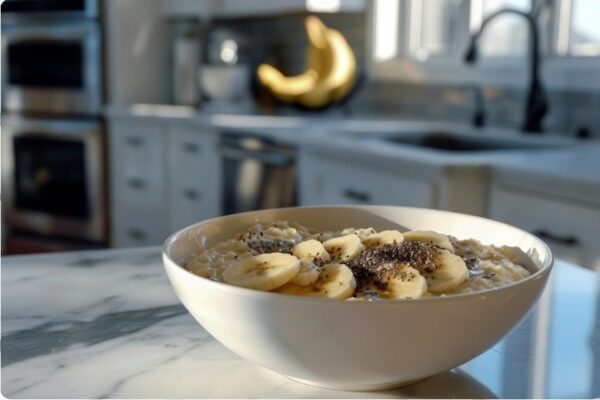
💧 Marathon Runner Diet On the Run – Stay Ahead of the Wall
Once the race starts, your fueling strategy becomes critical. Your body only stores about 90 minutes’ worth of carbs.
Start fueling early and consistently:
- Aim for 30–60 grams of carbs/hour
- Practice with gels, bananas, energy bars, or sugar solutions
- Hydrate with small sips at every station
Experiment with walking a few steps during intake—it’s better to slow down briefly than to miss your nutrition.
Some runners wait too long to take their first gel—don’t make that mistake. I take my first gel 25 minutes into the race and continue every 35–40 minutes. I also alternate between water and sports drinks at aid stations to keep balance. On long runs, I even rehearse opening gels while moving and practice breathing calmly while swallowing.
🧪 Practice Your Marathon Runner Diet Strategy
Use your Long Slow Distance (LSD) runs to simulate race conditions:
- Try different breakfasts and note digestion
- Test fluid amounts the day before and during
- Train taking energy at pace—not just during jogs
This is your lab. Use it to find what works before the stakes are high.

One trick I’ve learned is to wear the exact gear—including fluid belt, bottles, and gels—that I plan to race in during my longest training runs. It may sound overkill, but even how your belt fits when full matters. Little adjustments like placing a gel pouch on your non-dominant hand side can reduce distractions. These small decisions become automatic when practiced often.
🎯 Final Thoughts: Finish Strong, Fuel Smart
Nutrition is your hidden training partner. You might not notice it until something goes wrong—but when you get it right, everything clicks.
A smart race day diet isn’t about perfection. It’s about preparation.
By practicing what you eat, sticking with what works, and fueling early, you’ll go into your marathon confident, relaxed, and strong from start to finish.
The more you treat food as part of your running—not separate from it—the better your results. Fueling right is a form of self-care and respect for your hard training. When you start seeing that connection, every meal feels like a step closer to the finish line.
❓ FAQ – Race Day Diet for Marathon
1. When should I eat breakfast before a marathon?
Eat 2.5–3 hours before start time for best digestion.
2. How many gels should I take during the marathon?
Start with 2 per hour and adjust based on training results.
3. Can I just drink water and skip energy products?
Not recommended. You’ll need carbs to maintain performance.
4. Is caffeine helpful before running?
Yes, in small doses. A cup of coffee can help with alertness and digestion.
🧡 Summary Quote:
“Marathon success isn’t just about miles—it’s about meals. Train your diet like you train your legs, and you’ll cross that finish line strong.”

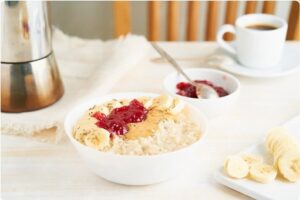
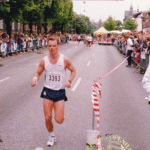
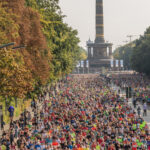


These are very good points on how to eat to feel and perform your best on race days. In any pursuit where there are large stakes (like a race, interview, performance, etc), it is best to not introduce wildly different foods, liquids, and supplements into your routine than you are already used to. It’s great advice to plan ahead for the pre-race nutrition, during race nutrition, and a recovery plan as well.
Hi Aly
Thank you for the comment. Happy that you could use some of it.
Be Well
Thanks for sharing this great review on marathon runners diet. Sometimes a good diet will help you to stay healthy. Trust me even if I take all these diet mentioned above I cannot run five minute but trust if you an athlete these stuff will go a long way to make you fit. Affiliate marketing as taking the race of my leg to my head
Hi petergeorge5666
Thank you for the comment.
Be Well
hellloo dear, really what an amazing content youve just shared with us all, i am reallt happy i got to see these website it really i s nice, i believe these is exactly what my sister needs, she is a wonderful athletic and i believe these post will surely be of help to her, i really do fancy these post a lot, in these pandemic times, i believe these post will go a long way, thanks for the info, ill surely do some recommendations
Hi Skuchmane
I have to reply your comment now. Because your are such a lovely person with a beautiful language. Thanks for your comment again. We can all do what we want if we just start out from where we are and start working on it. The Corona is just temporary and it’s a test to us.
Be Well